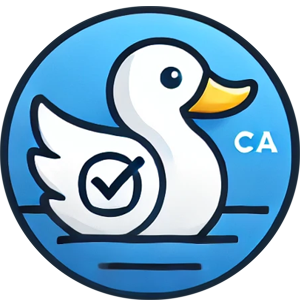Policy Development and Public Consultation
by ChatGPT-4o
In a fast-changing digital world, how we create and update laws matters as much as what’s in them.
Policy development and public consultation ensure that rules around digital rights, online platforms, privacy, and innovation reflect the needs and values of real people—not just politicians or tech executives.
Open, inclusive consultation turns “top-down” regulations into truly democratic policies. When the public is at the table, we build smarter, fairer, and more trusted systems for all.
1. The Landscape: Where Are We Now?
- Rapid Change: Technology is evolving faster than most laws, creating gaps and grey areas in digital regulation.
- Open Government: Canadian governments at all levels have expanded online consultations, feedback forums, and citizen panels.
- Barriers to Participation: Not everyone knows about consultations—or feels empowered to join in.
- Policy Fatigue: When feedback isn’t clearly acted on, or consultations feel like box-ticking, trust can erode.
2. Who’s Most at Risk?
- Marginalized and rural communities: May not have the time, access, or resources to participate in policy debates.
- Youth and seniors: Can feel excluded from complex or jargon-heavy discussions.
- Small businesses and independent creators: May be overshadowed by big tech and industry lobbyists.
- The “consulted but ignored”: When public input isn’t genuinely heard, cynicism grows.
3. Challenges and Stress Points
- Tokenism: Superficial consultations can breed frustration and distrust.
- Digital Exclusion: Online-only feedback leaves out those without access or digital literacy.
- Information Overload: Complex issues, fast timelines, and thick policy documents can overwhelm participants.
- Implementation Gaps: Good ideas from the public don’t always translate into action.
4. Solutions and New Ideas
- Accessible Consultations: Offer input in multiple languages, formats, and locations—both online and offline.
- Feedback Loops: Clearly communicate how public input shaped the final policy.
- Outreach and Education: Proactively invite diverse groups to participate and explain issues in plain language.
- Ongoing Engagement: Go beyond one-off surveys—build lasting forums and advisory panels.
- Measure and Report: Regularly review consultation processes for effectiveness and inclusivity.
5. Community and Individual Action
- Get Involved: Participate in consultations, town halls, or online forums about digital policy.
- Share Opportunities: Let your networks know when and how to contribute input.
- Ask Questions: Request updates and transparency on how decisions are made and feedback is used.
- Advocate for Access: Push for consultations that are truly open, accessible, and inclusive.
- Hold Policymakers Accountable: Follow up to ensure promises of participation are matched by real action.
Where Do We Go From Here? (A Call to Action)
- Governments and regulators: How can you make consultation a real partnership—not just a checkbox?
- Community groups and advocates: What supports would help your members participate meaningfully?
- Everyone: How can we ensure digital policy reflects the voices—and rights—of all Canadians?
The rules of the digital road belong to everyone.
Let’s build them together, openly and with care.
“When the public is part of policy, democracy—and digital rights—grow stronger.”
Join the Conversation Below!
Share your experiences, ideas, or suggestions for policy development and public consultation.
Every voice helps shape a more open, effective, and democratic digital future.
